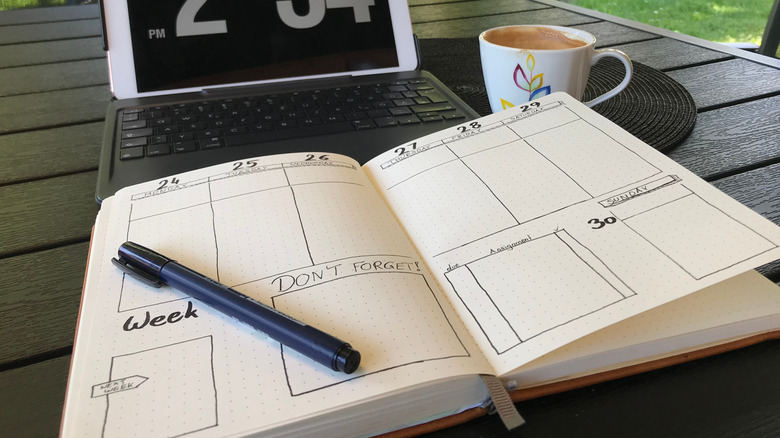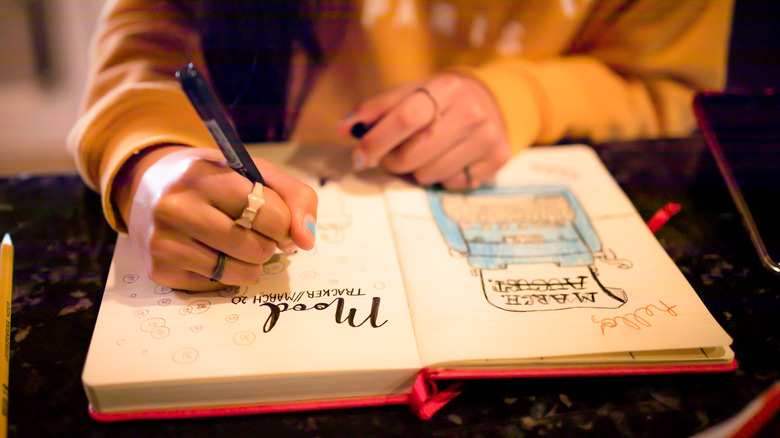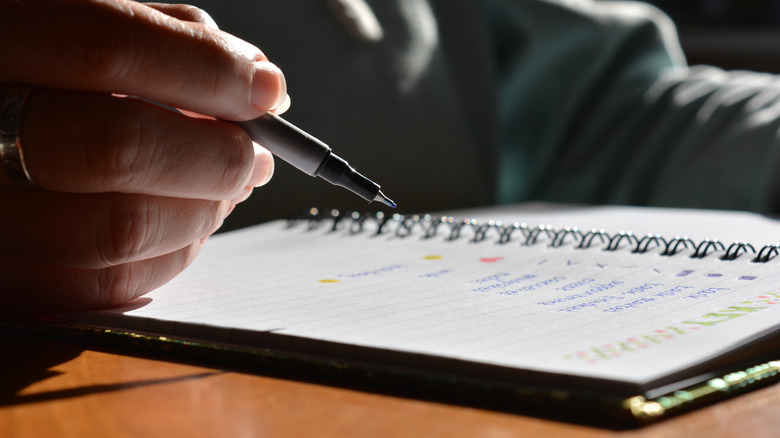Why You Should Change Your To-Do Lists Into Menus
There are those of us who prefer keeping our lives ordered in a regimented way through our smartphones, which can ping to remind us when things are meant to be done or when our next appointments happen to be. Then there are those of us who prefer to live in the moment. But for those in between, who are soothed by the feel of a good pen sliding over high-quality paper as we write out tasks and tick them off, there are bound journals and daybooks.
But if your mind is on neutral, and the thought of working your way down a linear to-do list seems a bit much, TikToker Caroline Hardin has a suggestion that might hit the reset button in a way that works for you. For this, you'll need a planner — or in her case, a bullet journal — your favorite pen, and a bit of imagination.
Hardin suggests creating different lists to turn to when you don't know what to do; and because of the way the lists are organized, they look less imposing and more like menus, which offer up choices. If we were to draw analogies, we might think of these as apps and sides that might add flavor and take away stress from your day.
Sort tasks by the amount of energy they take
In her video, which has been viewed over 130,000 times, TikToker Caroline Hardin shows how she's planned out her Sunday, which is classified into "high energy" and "low energy" tasks. In her case, both energy levels come with a list of suggested tasks or ideas which might be accomplished when she's in the right mindset to take on one of the tasks. We'd like to thank her for acknowledging that watching a show and taking an "extravagant shower" are both legit ways to spend your time. Plus, she makes a special list to start off the week. "To make it on my Sunday list, something either had to make my week easier, or make me happy, or both," she says in the video.
Before you dismiss this as a project that can only be executed by someone who has nothing to do, the TikToker introduces her weekday menus, which presents tasks that are organized in a flow that works for her. As a bonus addition, she offers up a "self-care" menu, which features a list of ideas that she can incorporate into her day and that might make her feel better — because personal wellbeing is super important.
Why journaling works
Even before the coronavirus pandemic kept us locked up in our homes, scientists were calling out the benefits of journaling. Writing out our thoughts can help boost memory, improve mindfulness, and exercise our communication skills, per The New York Times. More than that, it can help us rest easy, and help us build better immune systems along the way. Furthermore, University of Texas social psychologist James W. Pennebaker told the publication that journaling has a multitude of positive effects and can trigger "a whole cascade of things."
Journaling is even more critical when life generates great moments of anxiety. Eckerd College assistant professor Allison Quatrini credits journaling with the ability to help sort through her thoughts. "If I get [my thoughts] out on the page and clear the mental decks, it sets up the rest of the day to not only be more productive but be more relaxed," she told Greater Good Magazine.
But don't take our word for it, or the experts' for that matter. If you're up for it, pick up the pen, find a notebook, planner, or journal you like, and dream up a menu that works for you.


